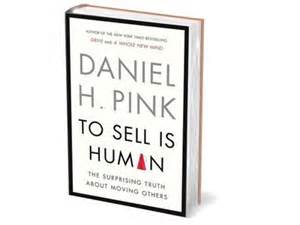The importance of changing how we envision our roles as educators We have entered a new and extremely important age in education where profound changes are on the cusp of becoming more common practice. As more and more evidence-based research comes out, we are finding that the way things have been done is no longer working. In a 2013 article written by Jennie Rose entitled "How Teachers Can Sell Love of Learning to Their Students", she does a great job in capturing Daniel Pink's thoughts about the importance of educators shifting their perception on what their roles actually are in education. Backing his thoughts with the most recent research available Pink suggests alternative ways to truly engage learners regardless of subject area. I am a huge advocate of providing choice in PE for a number of reasons. Although I believe that physical literacy is an important part of any physical education program, I believe that there are more important things. Emotionally engaging our learners and getting them invested in their own learning and success is paramount in my program. As I read more and more of the science and research-based evidence, I'm completely sold on the necessity to change the way things are done. These changes must be done as soon as possible, no more foot dragging or dawdling. It's time for drastic change. “We have a lot of learned behavior of compliance, and hunger for external rewards and no real engagement.” When dealing with students and trying to get them completely engaged in their learning, Pink states that we must make it personal with them. We must connect what they are learning in classes to their real lives outside the walls of the school. Moving away from standardized testing and rote memorization, to creating learning environments where autonomy and goal-setting are paramount.
Pink also emphasizes the need for 21t century learners to get more caught up in 'problem finding' rather than 'problem solving'. Problem finding is an essential skill as it allows students to think ahead and identify real world problems around them then do something about it. I'll take this one step further by saying that in my PE program, problem-finding is a priority, as it gets students to identify roadblocks and obstacles that may hinder their own learning in school. Problem finding is essentially all about them and is very much within their control. So, what do you think? Does Pink's work and vision have a place in your life as an educator? In particular, think about physical education for a moment. How can our PE programs better engage students and connect learning to their real lives? Does your reporting structure and assessment strategies reflect the latest evidence-based research in regards to effectively preparing students for the world in which they live? To what extent do students have autonomy and ownership over their own learning in your programs? Although physical literacy forms a critical part of any PE program, are there equally important areas that must be addressed alongside the development of physical skills? The last thing I would like you to think about is the degree of flexibility there is within your program to change your assessment and reporting structures. If your reporting structure is very rigid, are there still ways that you can modify, adapt, and shape the learning experiences and assessment tasks that you offer your students in PE? I suggest you read the link to the article above as it will get you thinking even deeper about your role as an educator. Would love to hear your thoughts in the comment box below.
0 Comments
Leave a Reply. |
AuthorKAUST Faculty, Pedagogical Coach. Presenter & Workshop Leader.IB Educator. #RunYourLife podcast host. Archives
September 2022
|
- Welcome
- All Things Teaching and Learning
- The Aligned Leader Blog
- Consulting and Coaching Opportunities
- My TED X Talk
- My Leadership Blog
- Run Your Life Podcast Series
- How PYP PE with Andy Has Helped Others
- Good Teaching is L.I.F.E
- The Sportfolio
- Example Assessment Tasks
- PYP Attitude Posters (printable)
- Publications
 RSS Feed
RSS Feed
